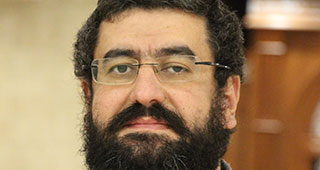- Sections
- Chassidish Stories
The Torah study is dedicatedin the memory of
Hana Bat Hain
3087
"Rebbe," exclaimed the perturbed driver, "the sun is about set! The Sabbath is nearly upon us!" "In this regard you are correct," responded the Rabbi. "But rather than beating the horse you aught to appease him. If you do not, he will bring charges against you before the Heavenly Tribunal in the World to Come. This would be somewhat embarrassing to say the least."
Rabbi David's concern for all of God's creatures can serve as an important lesson. His compassion for all living things caused him to dedicate himself even to the wellbeing of animals. It stemmed from his earnest concern for the needs of all creatures. It appears that beyond this concern - which was founded upon the words of the verse, "He has mercy upon all of His creatures," - an even more profound lesson can be learned from our story.

Chassidish Stories (17)
Rabbi Eliezer Melamed
3 - A Tailor’s Task
4 - The Horse Vs. The Sabbath
5 - The Charm of Jerusalem
Load More
It appears that this is what is happening in our story: It takes place on a Friday afternoon, the time for preparation. At this of all times the horse decides to halt. The horse is in fact a symbol. He represents the physical world. He is the porter. He is the physically strong. At the same time, though, he is supposed to be the one who serves us on the path to our destination, the path to Sabbath sanctity.
Here the horse decides to stop, as if to say that this path, the path of sanctification and purification, is not for him. When it comes down to it, he is simply a horse, and what can a horse be expected to know about Sabbath's sanctity anyway? The material world is crude and coarse; what need does such a world have for Sabbath? He chooses to stand still. He senses an inability to play any part in the whole process of the Sabbath. What we have here is the classic conflict between the spiritual and physical realms and their aims.
What sort of attitude should we display toward the physical world? What should we do to all of those baser tendencies when they hinder spiritual development. The approach chosen by the coachman is to beat the horse. Beating, he believes, is the only possible way to activate the physical world and coerce it into taking part in the spiritual world: direct confrontation is needed in order to make peace between his material tendencies and the spiritual realm. The coachman can justify his behavior: The sun will set and the Sabbath will enter. The two of them are liable to end up desecrating the Sabbath. The situation which is created is one wherein there is a collision between worlds. The approaching Sabbath carries with it a need to choose: to beat the physical world so that it fits the spiritual or to forfeit one's spiritual leanings (i.e., to desecrate the Sabbath).
Rabbi David refuses to to resign himself to such an philosophy. He explains to the coachman that, true, the pressure being placed upon the two because of the setting sun is certainly an important consideration. It is necessary to consider the man's spiritual needs and not to forfeit them because of material obstacles.
The difference between Rabbi Davids approach and that of the coachman, though, lies in the manner in which each decides to reconcile the horse with the Sabbath. Instead of beating the horse Rabbi David commands the coachman to appease with him. We must approach the physical world peacefully. The physical world does not run counter to the spiritual. Its purpose is to assist the spiritual world. The problem begins when people portray these two spheres as negating one another. When this happens a war erupts. The horse comes to a halt and the Sabbath is likely to be desecrated. The spiritual world stands to be harmed. Making peace with the horse implies that every person has physical needs. One must be aware of these necessities and provide them a fitting place within the boundaries of the spiritual world, while, at the same time, harnessing them to the "Sabbath chariot."
If man does not make peace with the horse, he will eventually have to account for his actions before the Heavenly Tribunal. The physical world is a Divine creation. It has an important place among all of the preparations towards sanctity. It refuses to be insulted. It wants to be used for sacred purposes. It wants to be part of the process. If a person dislodges the the physical world from the sphere of relation to the sacred, he will eventually be called upon to make an accounting. What will he do when he is forced to stand before the horse with no way of defending himself? Why did he not harness him to the chariot of the Sabbath?

The Three Keys
Rabbi Uzi Kalchaim zt"l | Wednesday, 28 Tishrei 5768

The Laws of Tumat Met
Rabbi Yirmiyohu Kaganoff | Wednesday, 26 Cheshvan 5768

Separating Terumah and Maaser
Rabbi Yirmiyohu Kaganoff | Tamuz 1 5782

Explaining the Mitzvah of Pidyon Shevuyim
The Commandment of Redeeming Captives
Rabbi Yirmiyohu Kaganoff
Daf Yomi Makkot Daf 20
R' Eli Stefansky | 30 Nisan 5785

Parashat Hashavua: More Mila than Brit?
Rabbi Yossef Carmel | Iyar 5785
Daf Yomi Makkot Daf 18
R' Eli Stefansky | 28 Nisan 5785





